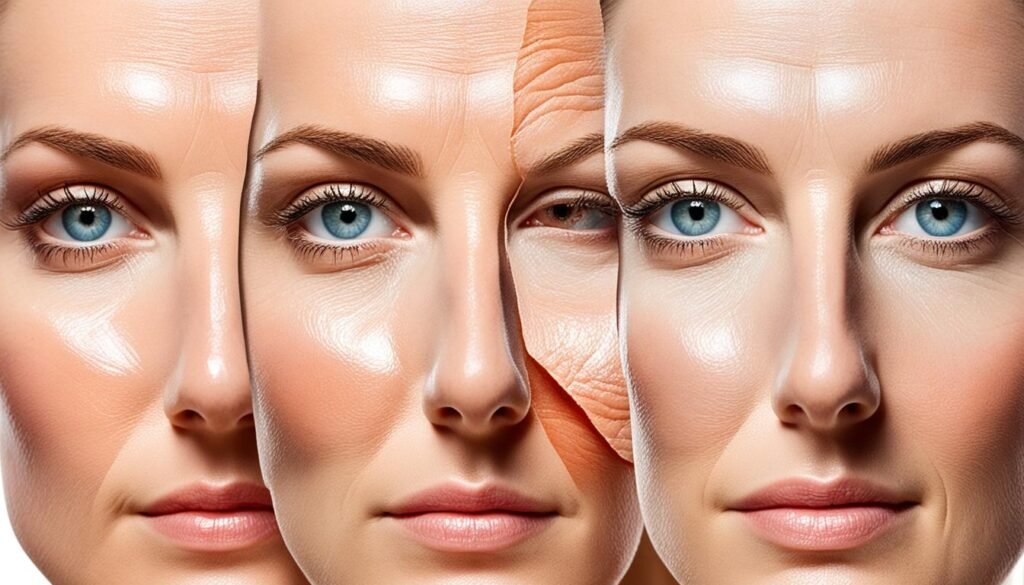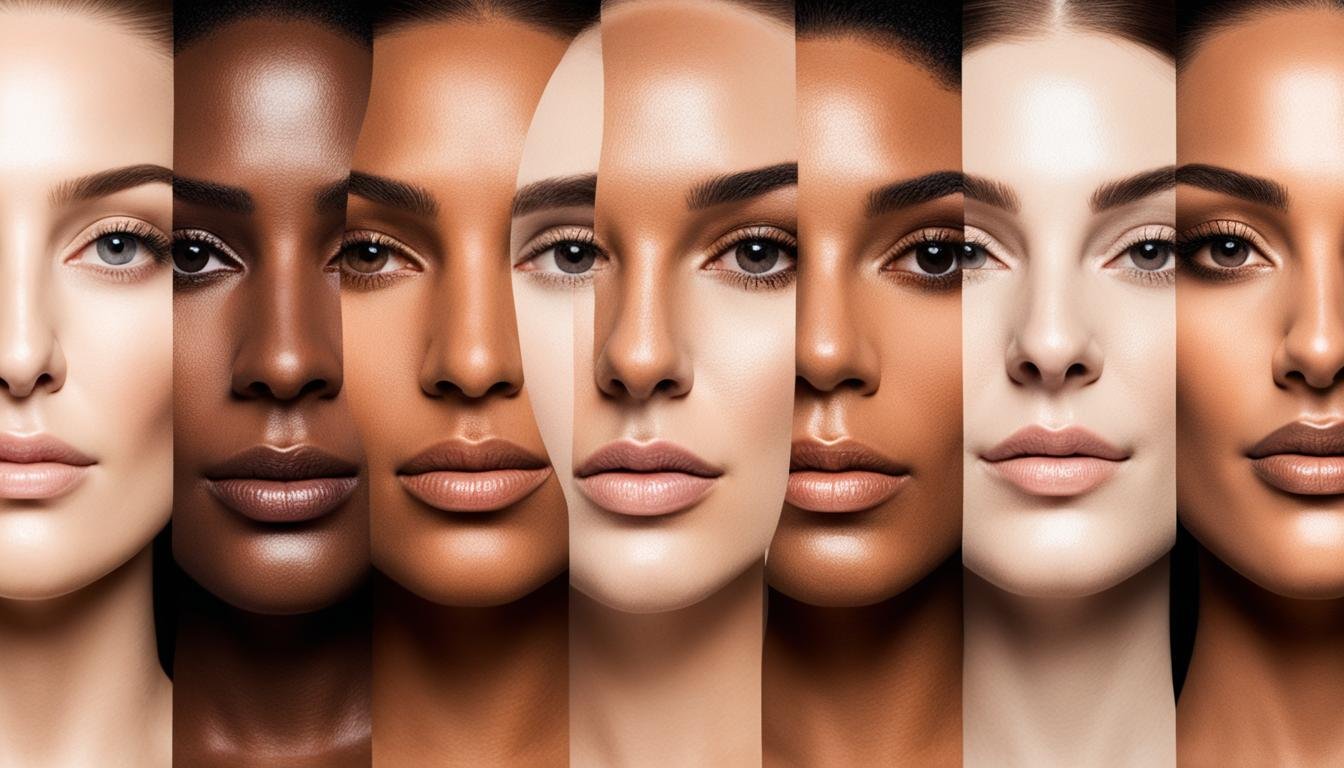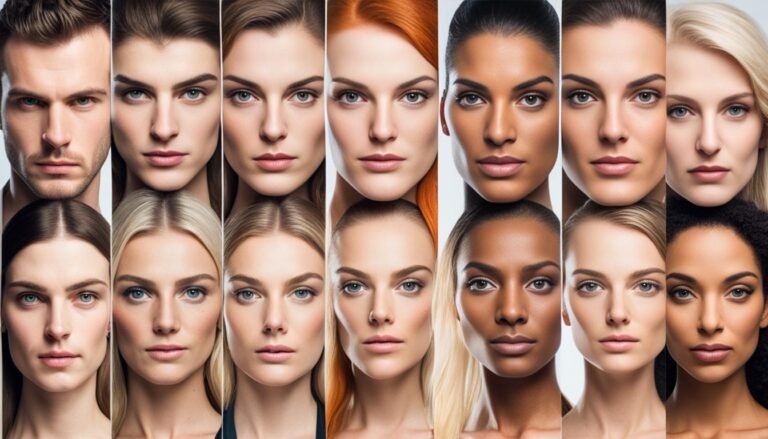Which skin color is most attractive?
The question of which skin tone is most attractive is a topic that has intrigued individuals for centuries. But have you ever wondered why certain skin colors are deemed more attractive than others? Is there a universal standard of beauty when it comes to skin color, or is it all subjective?
In this article, we will delve into the fascinating world of skin color and explore the perceptions of beauty that surround it. We’ll uncover the influence of societal biases, historical factors, and cultural preferences that shape our ideas of attractiveness. Prepare to challenge your beliefs and discover the complex dynamics that come into play when it comes to skin tone and beauty.
Key Takeaways:
- The perception of attractive skin color is subjective and varies depending on personal tastes and cultural influences.
- Historical factors, such as social hierarchies and the impact of colonialism, have shaped preferences for certain skin tones.
- Olive skin tone is considered attractive due to its association with good health and a lower risk of skin cancer.
- Sun damage and testosterone levels can affect overall skin tone. Taking care of the skin through proper sun protection and natural supplements can contribute to an attractive complexion.
- Beauty is not solely determined by skin color but a combination of physical features, personality, and individual preferences.
The Impact of Skin Color on Perceptions of Beauty
A study conducted by the Missouri School of Journalism found that people perceive a light brown skin tone as more physically attractive than pale or dark skin tones. This finding has implications for advertisers who use models in their campaigns, as it suggests that both Caucasians and African Americans react similarly to light, medium, and dark shades of skin tone.
Advertisers have historically been torn between using black models to appeal to a growing black target audience and concerns of alienating white consumers. However, research shows that both groups prefer light brown skin tones.
This study challenges the belief that skin color alone impacts perceptions of beauty, indicating that physical features play a more significant role.
| Group | Preference |
|---|---|
| Caucasians | Light brown skin tone |
| African Americans | Light brown skin tone |
Factors Affecting Skin Tone and How to Improve Complexion
Several factors can impact skin tone, including sun damage and testosterone levels. Excessive sun exposure can lead to an uneven skin tone, premature aging, and the development of sun spots and blemishes. Wearing sunscreen with a high SPF and practicing sun protection habits can help mitigate these effects.
Testosterone levels also play a role in determining skin tone. Higher levels of testosterone are associated with warm undertones, which are often perceived as signs of good health. On the other hand, lower testosterone levels can contribute to a paler complexion.
To improve complexion and protect against sun damage, natural supplements can be beneficial. One such supplement is vitamin C, which acts as an antioxidant. It neutralizes the harmful effects of UV rays and aids in skin regeneration.
| Factors | Impact on Skin Tone |
|---|---|
| Sun Damage | Uneven skin tone, premature aging, sun spots, blemishes |
| Testosterone Levels | Warm undertones, perceived good health |
| Natural Supplements | Improved complexion, protection against sun damage |
By maintaining a healthy lifestyle and taking care of your skin, you can contribute to a more attractive complexion. This involves protecting your skin from sun damage and considering natural supplements that support skin health.

Conclusion
The question of which skin color is most attractive is complex and subjective. The perception of beauty varies across cultures and individuals, influenced by societal norms and personal preferences. Historical factors and societal influences have perpetuated a preference for lighter skin tones, associating them with attractiveness. However, it is essential to recognize that beauty is not solely determined by skin color.
Olive skin tone is also considered attractive due to its natural and healthy appearance. This earthy and timeless skin color is associated with good health and a lower risk of skin cancer. Understanding that attractiveness is not limited to a specific skin color allows us to appreciate the diversity of beauty.
Factors such as sun damage and testosterone levels can affect overall skin tone. Regular sun protection, including wearing sunscreen with a high SPF and adopting sun safety habits, can help maintain an even complexion and prevent premature aging and sun spots. Additionally, natural supplements like vitamin C can contribute to an attractive complexion by acting as antioxidants, neutralizing the harmful effects of UV rays, and supporting skin regeneration.
In conclusion, while perceptions of beauty may be influenced by skin color, it is crucial to acknowledge that beauty is multifaceted. It encompasses not only physical features but also personality traits and individual preferences. Embracing diverse skin tones and promoting inclusivity allows us to appreciate and celebrate the many expressions of beauty.






